Are mice invading your home? Mice are prolific breeders, and all it takes is just one of these furry critters, and within a few weeks, there could be dozens. Mice are also a health hazard. They not only gnaw on wires but use their urine to communicate. As they dash around your house foraging for food, they urinate everywhere and can spread diseases quickly. So how do you get rid of mice without harming your pets? Whatever your situation is, we have compiled useful information that will help you get rid of mice without causing any harm to your pets.
[toc]
Get Rid of Mice without Risk
For many pet owners suffering from mouse infestations, the go-to mouse solution is to buy the best mouse poison or to use traps to kill mice. However, using mice traps and deadly mouse poison can cause harm to your pets. That’s why you should seek a mouse control solution that doesn’t harm pets, and that won’t put your children at risk.
We often say as curious as a cat, but other than being inquisitive, cats and dogs are also territorial animals. This makes them want to investigate every new thing in their home which can include mouse bait boxes. Dogs are omnivores and are particularly at risk. Young puppies that haven’t been trained are more inquisitive and are at a greater risk of getting harmed.
Poison
Mouse poison comes in different colors, sizes, shapes and active ingredients. Although rodenticides can sometimes look alike and contain the same active ingredients, they can be very different. So when purchasing pet safe rodenticides, always check the active ingredients to determine the risk of poisoning and the type of treatment needed.
 The most common types of active ingredients in rodenticides are:
The most common types of active ingredients in rodenticides are:
- Long-acting anticoagulants: They work by preventing blood from clotting normally which leads to internal bleeding. For poisoning to occur, the amount your pet needs to eat varies between the active ingredients and your pet’s age, weight, and health.
- Bromethalin: This is another common type of rodenticides that causes the swelling of the brain and spinal cord. Even the smallest amounts of this poison will show signs of poisoning. Cats are more sensitive to bromethalin which means that the tiniest amounts of this poison can cause life-threatening symptoms.
How to use mouse poison safely:
- Always read and carefully follow the instructions regarding the product usage.
- Store the poison in areas where your pet and children can’t reach them.
- Keep the package even after emptying the container.
Repellent
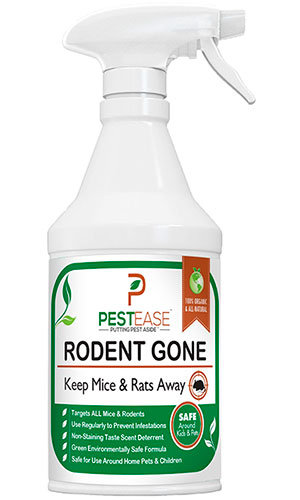 Most homeowners often turn to chemical rodent control when facing mouse infestation. While chemical repellents can impact mice, they can be harmful both to you and your pets when stores or applied incorrectly. Because chemical mouse repellents can be a health hazard, you can try a different way to control them. For instance, you can add natural mouse repellent plants such as amaryllis, lavender, or mint.
Most homeowners often turn to chemical rodent control when facing mouse infestation. While chemical repellents can impact mice, they can be harmful both to you and your pets when stores or applied incorrectly. Because chemical mouse repellents can be a health hazard, you can try a different way to control them. For instance, you can add natural mouse repellent plants such as amaryllis, lavender, or mint.
Some of the smells that mice hate include spicy scents such as cayenne pepper, garlic, and peppermint which is the best natural mouse repellent. Rodents such as mice have a sharp sense of smell and implementing some of these odors at key areas in your home will deter their presence. While most people like the smell of peppermint oil, rats and other pests such as spiders hate it. Use it to your advantage by adding it to your homemade cleaners. You can also keep these rodents away by dabbing peppermint oil onto cotton balls and tuck them into crevices and corners of your shelves.
Bait
Similar to fishing, if you don’t use the right bait, you won’t catch any mice. While mice can be attracted by food, they lose their minds with desire when they are presented with peanut butter, cheese, and gumdrops. Unfortunately, your pet will also be exposed to the toxic bait which according to the ASPCA is among the top ten chemicals responsible for pet poisoning.
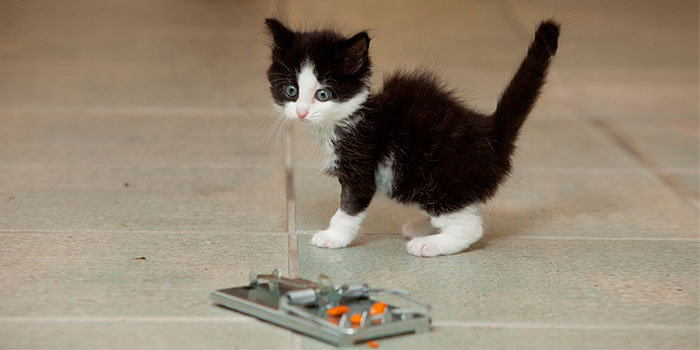
Don’t underestimate your pets’ ability to access baits that may be placed in seemingly out-of-reach and secure locations. The misconception that pets won’t be able to find rat baits has resulted in several cases of pet poisoning and deaths every year. Additionally, rat and mouse poisons are designed to attract rodents, and they may end up attracting your curious pets.
Even if you don’t use rodenticides, be cautious with your pets because your neighbors, local parks department, and businesses may be using them. Keep this in mind as well when traveling with your pets because some rental homes and hotels use rat poison.
 5 Ways to Protect your Pets from Rodenticides:
5 Ways to Protect your Pets from Rodenticides:
- Keep cats indoors.
- Keep your dog on its leash and fence the yard.
- Keep rodenticides out of reach. This includes pieces of poison in baits.
- Use pet-safe bait stations when using rodenticides around your home.
- Ask about rat poison in and around hotels or rental apartments when traveling with your pet.
Mice Control without Harming Dogs and Cats
Most pet control substances look like pet food or toys. For example, rat poison pellets are colorful and pill-shaped, and they can be mistaken for food. Additionally, most rodent baits are grain based and attract dogs. Therefore, even if you have a smart pet that has a good nose, it’s important to take extra measures to protect your pet.
If you find that you have a mouse infestation that requires much more than preventative measures, using the best humane mouse trap can help you cut down the mice population. One of the best humane alternatives to traditional snapping rat traps are the live-catching mousetraps. These traps catch mice without harming them. Once the mouse gets inside, the door closes capturing the critter alive. This is a tried and true method that many have used to get rid of mice.
How many traps do you need? You should purchase more traps than you need to help you catch all the mice within the shortest time possible to prevent them from breeding and causing more damage. At a bare minimum you should set out six mousetraps, and you can make use of different mouse traps.
Is d-CON Poison Safe for My Dog?
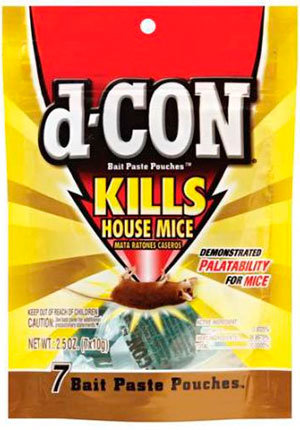 No, it isn’t. The active ingredient of d-CON is brodifacoum, a form of warfarin, and when ingested, it can cause death by hemorrhage. You may not observe signs of poisoning until your dog starts passing blood in the urine or stool, bleeding from the nose or develop hemorrhages beneath the skin and gums. The effects of this poison can remain present for up to 4 weeks. Therefore, if you suspect that your dog has swallowed d-CON, have it checked at once by your vet.
No, it isn’t. The active ingredient of d-CON is brodifacoum, a form of warfarin, and when ingested, it can cause death by hemorrhage. You may not observe signs of poisoning until your dog starts passing blood in the urine or stool, bleeding from the nose or develop hemorrhages beneath the skin and gums. The effects of this poison can remain present for up to 4 weeks. Therefore, if you suspect that your dog has swallowed d-CON, have it checked at once by your vet.
Tips to Remove Mice in House with Pets
Mice will come to your home sooner or later, especially when the weather outside gets cold and you will need to get rid of them. While mice may look adorable, the diseases they spread via their droppings and the parasites they carry (fleas) not to mention the damage they cause by chewing on almost anything is no joke.
- Use mouse traps. This is the best way to remove mice from your home. However, to ensure that you eliminate all mice, use several and different traps. Use glue traps, multiple-capture live traps, and bait traps. If you have pets, hide the traps in places where your pet can’t reach.
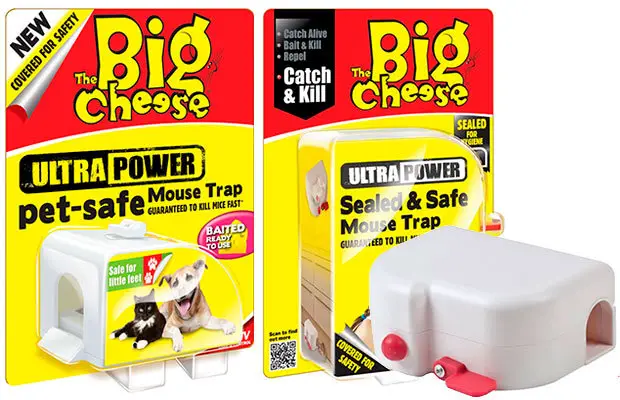
Also, consider using electronic mouse traps. These traps are pet safe and kid safe, and easy to dispose of. They eliminate mice quickly without using poison. They are easy to set up and shut off automatically to prevent accidental zapping.
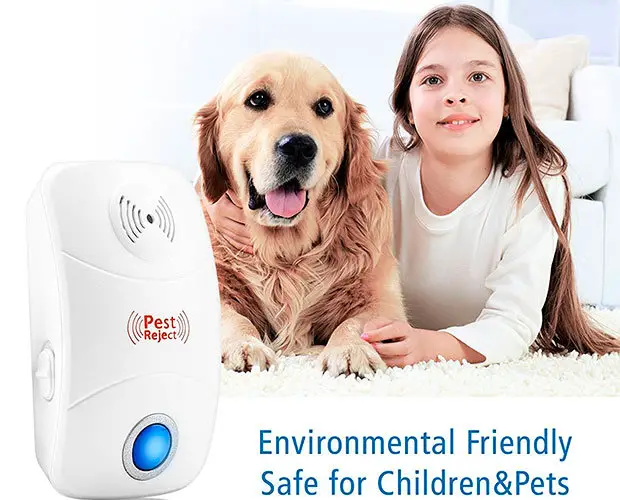
To effectively eliminate pets, choose the most ideal mouse traps. There are those designed for small areas while others are designed for large areas like your barn. -
Use mouse poison safely. Mouse poison is quick and very effective, but it requires a lot of care, especially if you have young children and pets. It’s important to know some of the common types of poison used to eliminate mice and how they work.
Some of the most common include:
- Anticoagulants: This is the most common poison on the market and it works by blocking vitamin K in the body. When a mouse ingests the poison, it is unable to form blood clots and eventually dies. You should know the right type of mouse poison, how to use and store it safely, and how to clean after a dead mouse. In case your pet ingests mouse poison, seek treatment immediately, they can survive with a vitamin K treatment.
- Hypercalcemia: It works by increasing the levels of calcium in the body which eventually affects major organs of the rodent and causes gradual death.
- Metal phosphides: This poison is fast acting and it can kill a mouse in less than 3 days. It contains zinc and when it enters the body, it causes the formation of a toxic phosphine gas. This is the best poison if mice show immunity to regular poisons. It has low secondary poisoning risks because the poison doesn’t reside in the tissues of the animal. This means you won’t have to worry if your pet eats the poisoned mouse.
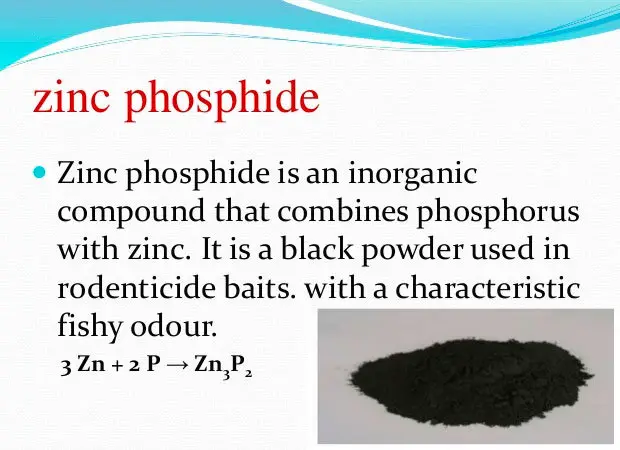
Bottom Line
Contrary to what you may have seen in cartoons like Tom & Jerry, mice don’t need a big hole to get into your home. They can squeeze in holes smaller than the circumference of your pinky finger. Therefore, first inspect the outside of your home for cracks and holes, and if there is evidence that they have already entered your home, use the above tips on how to get rid of mice naturally. Non-lethal and non-toxic methods do better in the long run to protect your family, pets and the mice from harmful chemicals.
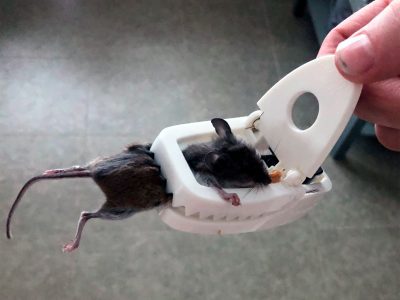
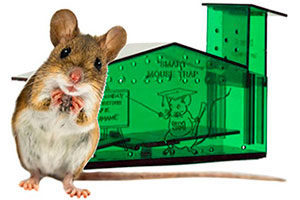


Would you kindly give a referral to mice exterminators that cannot harm my Pugs Household mice becoming a real problem Tomcat killed my too inquistive puppy Have 3 small dogs need to remove all poisons and have professionals get rid of them with poison or glue traps HELP
I live in an apt. last year a mouse got in through the heater on the baseboard he died. Now last night I saw another little mouse run from behind the couch!! YIKES!! I do have a small pet bird I surely don’t want mice around her. The maintenance guy was in fixing the valve on the heater could the mouse come in then? Never saw them before last night.
I’m going to put in a call to the office.
Any suggestions? Thanks
Ihave rats outside my doors pest control have put a bait box outside but afraid get in my house
I have tried everything on here them little annoying things just run a muck ,is there anything that they don’t like so they will leave I can’t have a cat I have to Pitts,,I also have a pet rabbit so there is alot I can’t try but good grief there has got to be something to put around to get rid of these things ,,iam not dirty no food I’d laying around grrrrrr
Thank you for all the information. Despite having a cat (and 4 dogs) I have been having an unusually large infestation of mice. In fact the mice chewed up the wiring on my cookstove and I am having to purchase a new stove. I am trying to find ways to hopefully prevent my new stove from being chewed up. I have been using sticky traps and gotten quite a few and have added an ultrasonic system to see if that helps. Your tips of using peppermint, etc. is going to be added to my list.